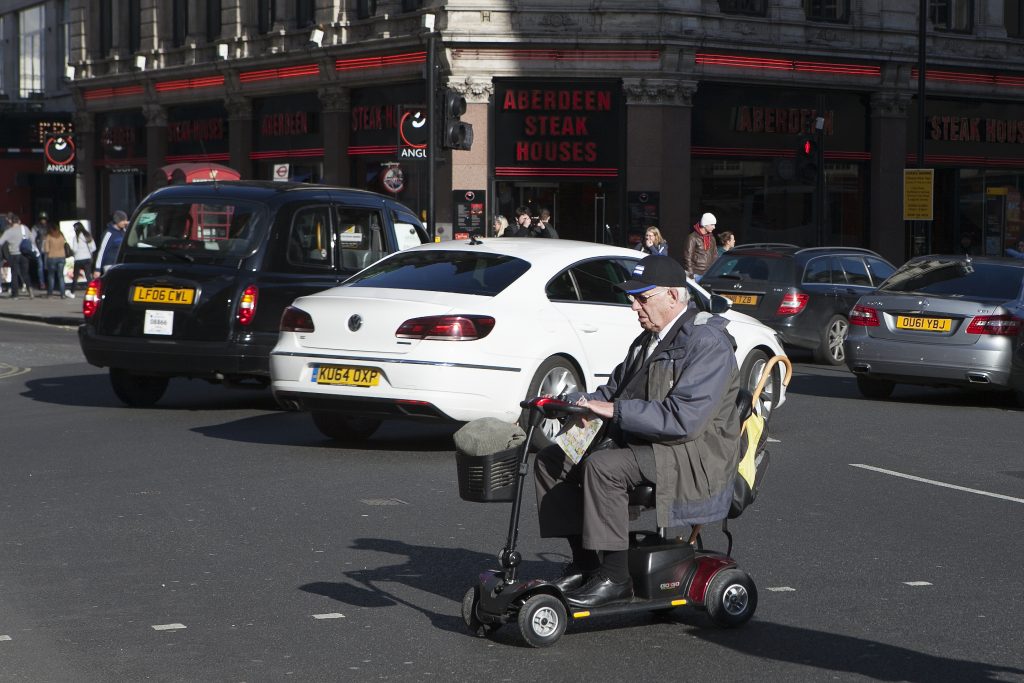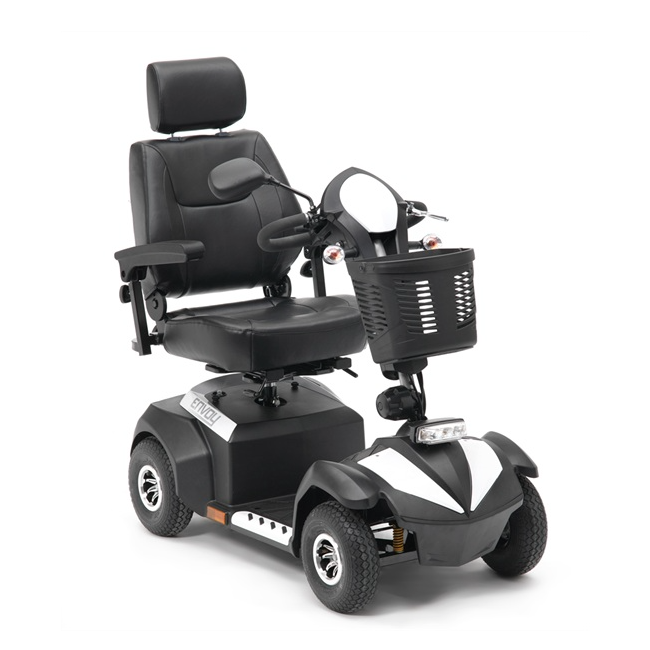What’s The Law On Mobility Scooters?

If you have – or are looking to buy – a mobility scooter, it’s important to know the rules and regulations involved with using them.
In this quick guide, we’ll help you brush up on your knowledge of the law around mobility scooters. Read on to get to grips with the facts.
Do you need a licence?
According to the law, you don’t need a licence to drive a mobility scooter (or powered wheelchair).
However, you may be obliged to register it with the DVLA – depending on the type of mobility scooter you have. You can register by completing the V44/4 form for new vehicles, of V55/5 for used vehicles. These forms will need to be ordered from the DVLA.
Mobility scooters come in two different categories. Here’s how they differ:
- Class 2 invalid carriages – mobility scooters in this category cannot be used on the road, and they can travel up to a maximum of 4mph.
- Class 3 invalid carriages – mobility scooters in this category can be used on the road and can travel up to a maximum of 4mph off the road, and 8mph on the road.
There’s no need to register a class 2 invalid carriage. However, if you have a class 3 invalid carriage, you’ll be legally required to register it.

What features does my class 3 mobility scooter need, if I’m going on the road?
Because you can drive class 3 scooters on the road, they have more rules attached to them than class 2 model. For example:
- You need to be 14 years old or more to drive a class 3 mobility scooter.
- The mobility scooter must not weight more than 150kg (unladen weight)
- The maximum width is 0.85 metres
- You’re not allowed to use it in bus lanes, cycle lanes, or on motorways
- The maximum speed limit is 4mph when travelling on a pavement or other pedestrian area
- You must have an efficient braking system, front and rear lights, and reflectors
- You need direction indicators, a horn and a rear-view mirror
- An amber flashing light is required when travelling on a dual carriageway.
Please note that these aren’t optional. If you don’t conform to these rules, you may be stopped by the police and you risk receiving a fine.
Can I take my mobility scooter on pavements and footpaths?
It’s legal to take both class 2 and class 3 mobility scooters on pavements, footpaths and other pedestrian areas. But you mustn’t exceed the maximum speed limit of 4mph. You’re not permitted to drive class 2 or class 3 mobility scooters in cycle paths that are marked ‘cycles only’.
Do I need to tax my mobility scooter?
You don’t have to pay vehicle tax for any mobility scooter (or powered wheelchair) – whether you have a class 2 or class 3 version. However, as we mentioned earlier, you’ll still need to register your class 3 mobility scooter with the DVLA.
Who can use a mobility scooter?
There are strict rules around who can use a mobility scooter. You can only drive a mobility scooter (or a powered wheelchair) if you meet any of the following criteria:
- You have difficulty walking due to an injury, medical condition or physical disability
- You’re training a disabled user to use the mobility scooter
- You’re demonstrating the vehicle prior to sale
- You’re taking the vehicle to or from maintenance or repair
Is mobility scooter insurance important?
There isn’t a legal requirement for you to have insurance for your mobility scooter (or your powered wheelchair). However, having protection in place can provide valuable peace of mind.
If you ever find yourself in a collision, and you don’t have insurance, you could be liable to pay damages if it’s your fault. In addition, if your mobility scooter is stolen or damaged accidentally, you won’t be covered without insurance. As mobility scooters (especially larger road-use scooters) can be very expensive, forgoing insurance could leave you seriously out of pocket in the event of an accident or theft.
Third-party and comprehensive options are available, depending on your budget and needs.


